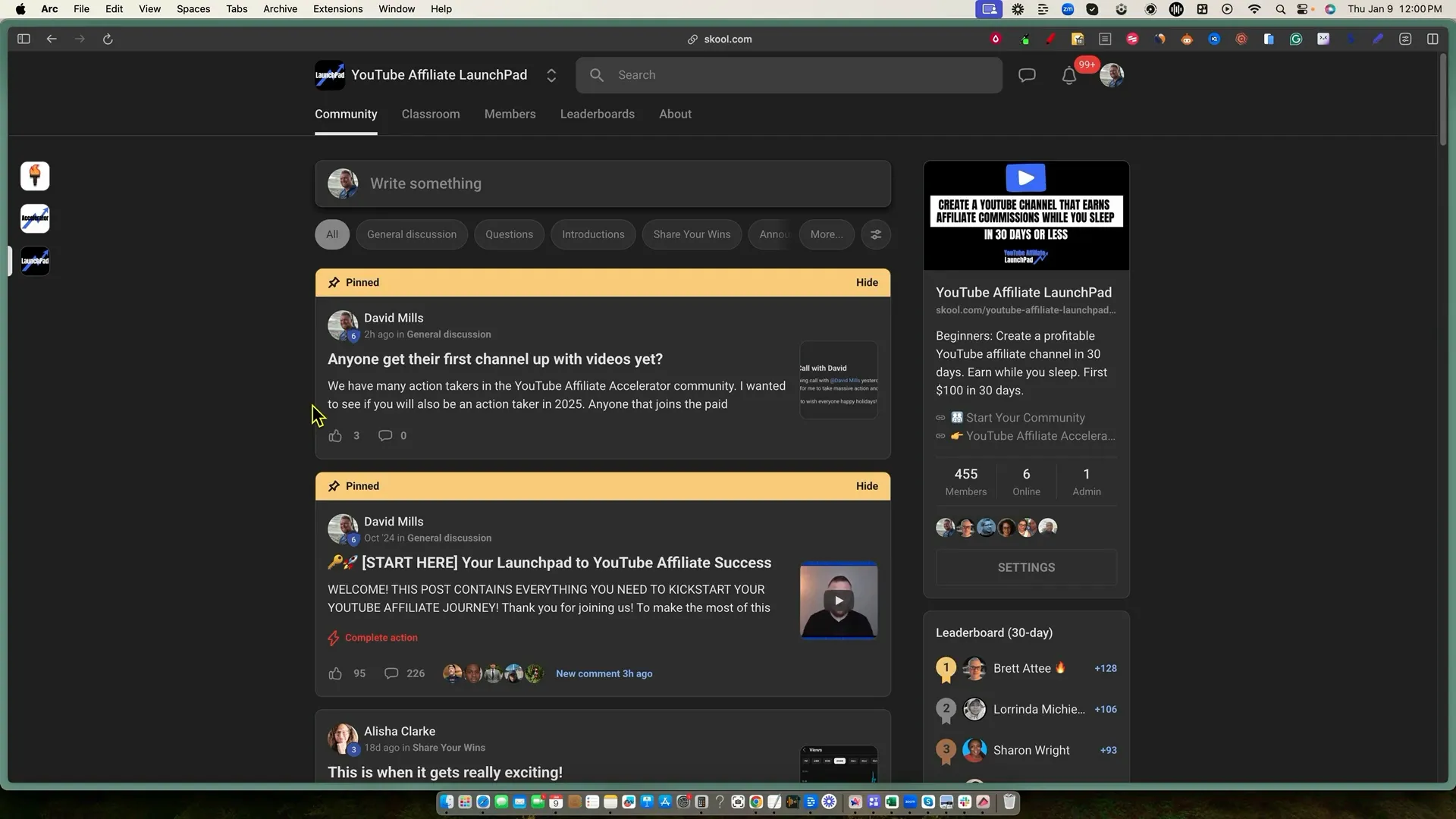Skool Review 2025: My Journey to $30K
Welcome to my deep dive into Skool, the community platform that helped me earn over $30,000! In this blog, I'll share everything you need to know about Skool, from its features to my personal experiences and insights on Table…

Welcome to my deep dive into Skool, the community platform that helped me earn over $30,000! In this blog, I'll share everything you need to know about Skool, from its features to my personal experiences and insights on monetization.
Table of Contents
- Introduction to the 2025 Skool.com Review
- Overview of Skool and Its Founders
- Exploring My Communities on Skool.com
- Monetization and Revenue Insights
- Gamification and Community Engagement
- Features and Customization Options
- Pros and Cons of Skool.com
- Future Outlook and Anticipated Updates
Introduction to the 2025 Skool Review
Hey there! Let’s dive into my experience with Skool, a platform that's changing the game for online communities. I’ve explored its unique features and how it can benefit creators like myself. Whether you’re looking to connect with others or monetize your passion, Skool has something to offer.
Why Skool.com Stands Out
What makes Skool different? It’s all about community building. The platform focuses on fostering genuine connections among users, allowing for collaboration and support. This is not just another social media site; it’s a place where people can come together around shared interests.
Key Features of Skool
- Community Focus: The platform emphasizes building relationships.
- Monetization Tools: Offers various ways to earn money through your community.
- User-Friendly Interface: Easy to navigate, even for beginners.
Overview of Skool and Its Founders
Skool was founded by a group of passionate creators who wanted to change the way online communities function. They recognized that existing platforms often prioritize content over connection. Their mission? To create a space where people can genuinely engage with one another.
The Vision Behind Skool
The founders envisioned a platform that not only supports creators but also encourages meaningful interactions. They understood that at the heart of every successful community is a strong bond between its members. This vision shapes everything about Skool, from its design to its features.
Meet the Founders
The team behind Skool is a mix of tech enthusiasts and community builders. Their diverse backgrounds bring a wealth of experience, ensuring the platform meets the needs of its users. They’re not just developers; they’re creators who understand the challenges of building an online community.
Exploring My Communities on Skool
Now, let’s get into the nitty-gritty of my personal experience with communities on Skool. I’ve joined several groups that align with my interests, and the engagement has been phenomenal. Here’s what I’ve discovered.
Types of Communities
- Creative Arts: A vibrant space for artists to share their work and get feedback.
- Entrepreneurship: A hub for budding business owners to exchange ideas and strategies.
- Health and Wellness: A supportive community focused on holistic living.
Engagement Levels
One thing I love about these communities is the high level of engagement. Members are active, sharing insights and encouraging one another. It feels like a safe space to express ideas and seek advice.
Building Relationships
I've made some fantastic connections through Skool. These relationships have not only enriched my experience but also opened up opportunities for collaboration. It’s amazing how a shared interest can lead to lasting friendships.
Monetization and Revenue Insights
Let’s talk money! Skool offers various monetization options for creators. I’ve been able to leverage these tools to generate income while doing what I love.
Monetization Options Available
- Membership Fees: Charge members to join your community for exclusive content.
- Donations: Encourage fans to support your work through donations.
- Merchandising: Sell products related to your community’s theme.
How I Monetize My Communities
In my communities, I’ve implemented a membership fee structure. This not only helps fund the community but also ensures that members are genuinely interested in the content. I also offer exclusive webinars and workshops, which have been well-received.
Revenue Insights
Since joining Skool, my revenue has steadily increased. The platform's tools make it easy to track earnings and adjust strategies. I’m excited to see how this will grow as I continue to build my communities.
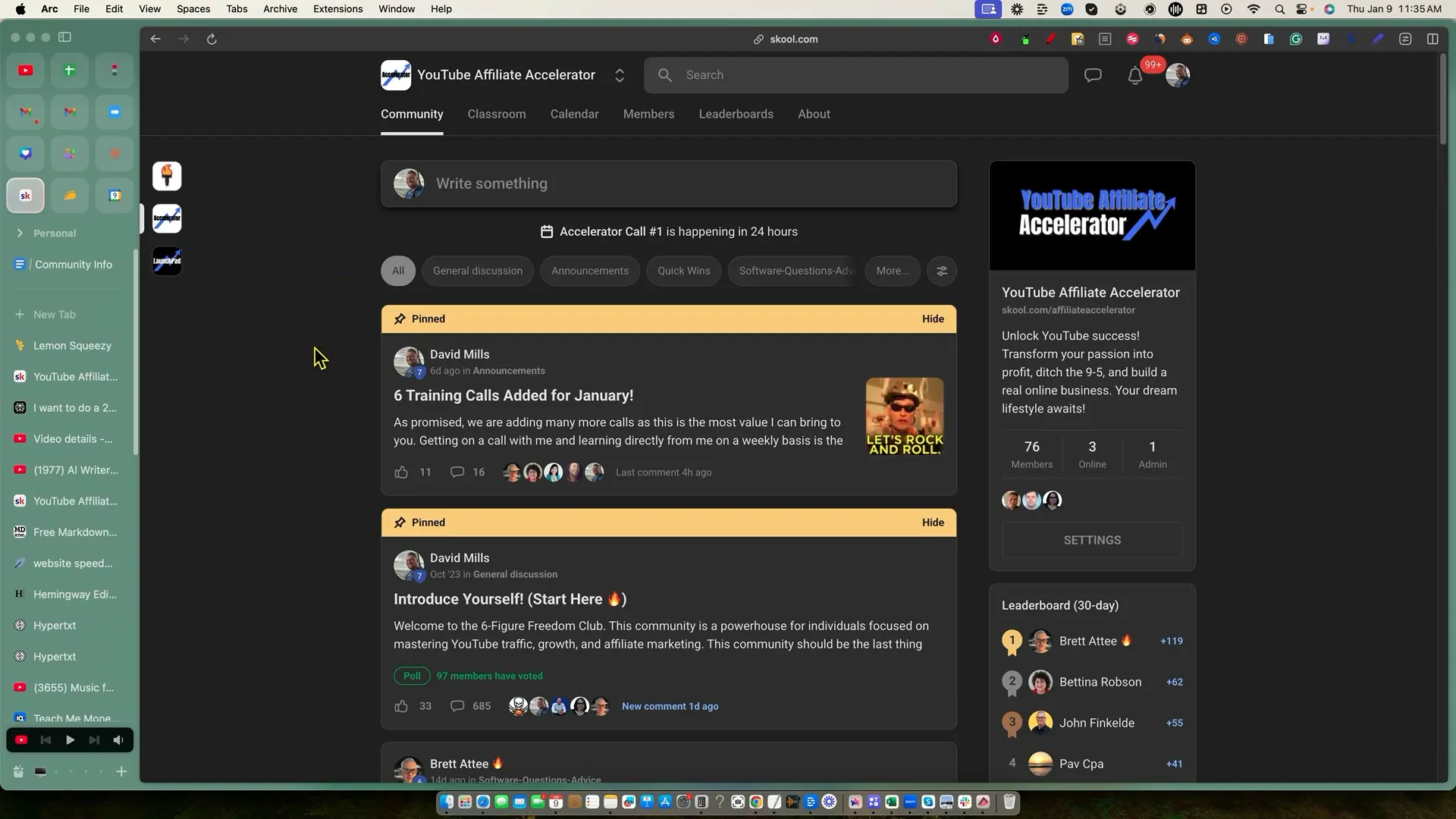
Gamification and Community Engagement
One of the standout features of Skool is its gamification elements. This isn’t just about adding points or badges; it’s about enhancing the overall user experience. Gamification encourages participation and keeps members engaged.
How Gamification Works
Members can earn rewards for various activities, like participating in discussions, completing tasks, or attending events. These rewards can range from simple badges to exclusive content. It creates a fun atmosphere that motivates everyone to be active.
Community Challenges
Another cool aspect is community challenges. These are time-bound tasks that encourage collaboration. For instance, a group might challenge itself to create a project together, fostering teamwork and camaraderie.
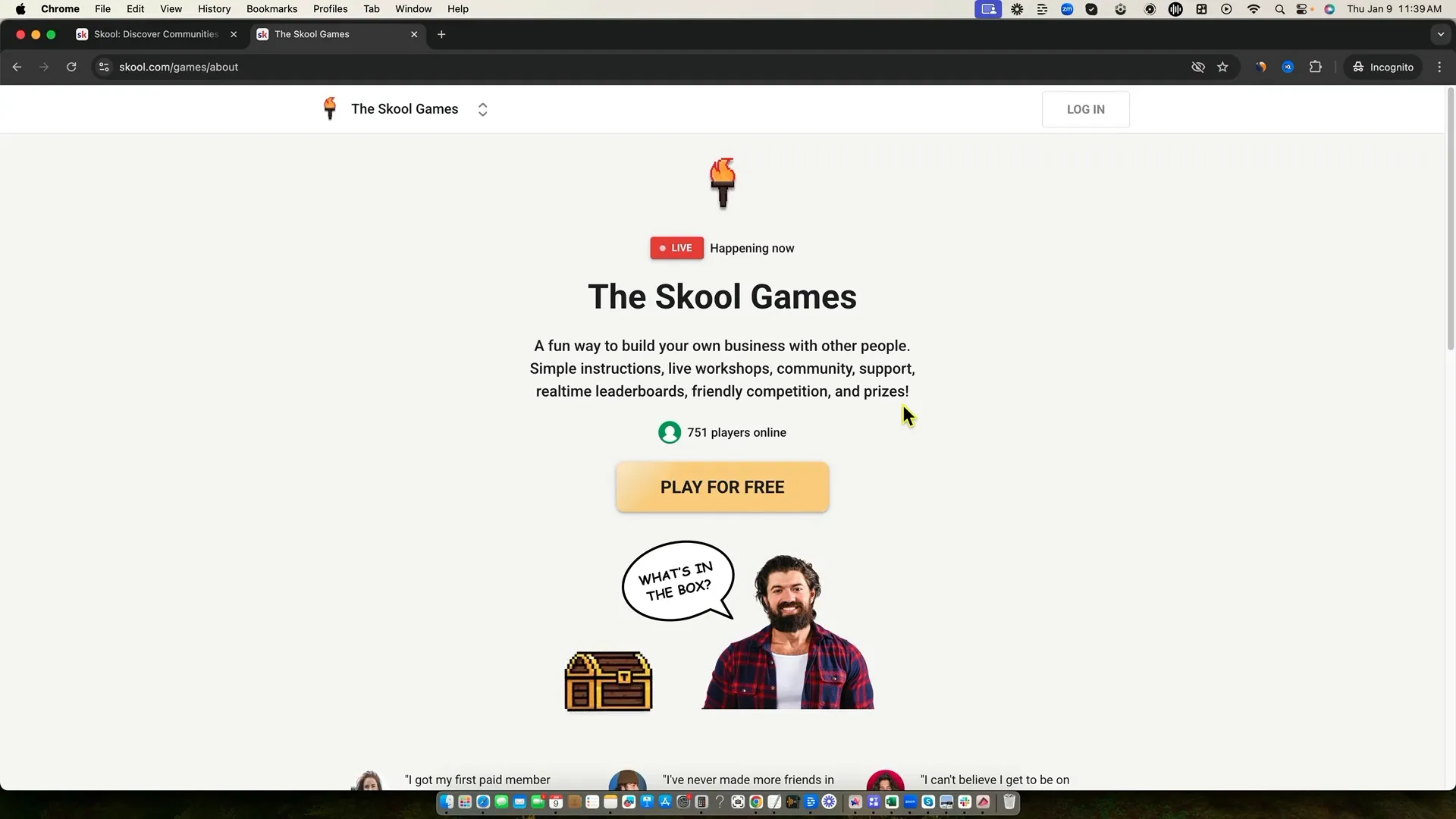
The Impact of Gamification
The gamification features have significantly boosted interaction in my communities. Members are more likely to engage when there’s a tangible reward for their participation. It also adds a layer of excitement that keeps things fresh.
Features and Customization Options
Customization is key to making any online community feel like home. Skool offers a range of features that allow you to tailor your community to fit your vision.
Customizable Layouts
One of my favorite features is the ability to customize the layout of my community space. I can choose how to display content, arrange sections, and even select color schemes. This means my community reflects my personal style!
Content Types
Skool supports various content types, including text posts, videos, and polls. This diversity allows for richer interactions and caters to different preferences. I like to mix it up to keep things engaging.
Integrations and Tools
The platform also integrates with several third-party tools. Whether it’s for email marketing or project management, these integrations streamline workflows. I’ve found this particularly helpful in keeping everything organized.
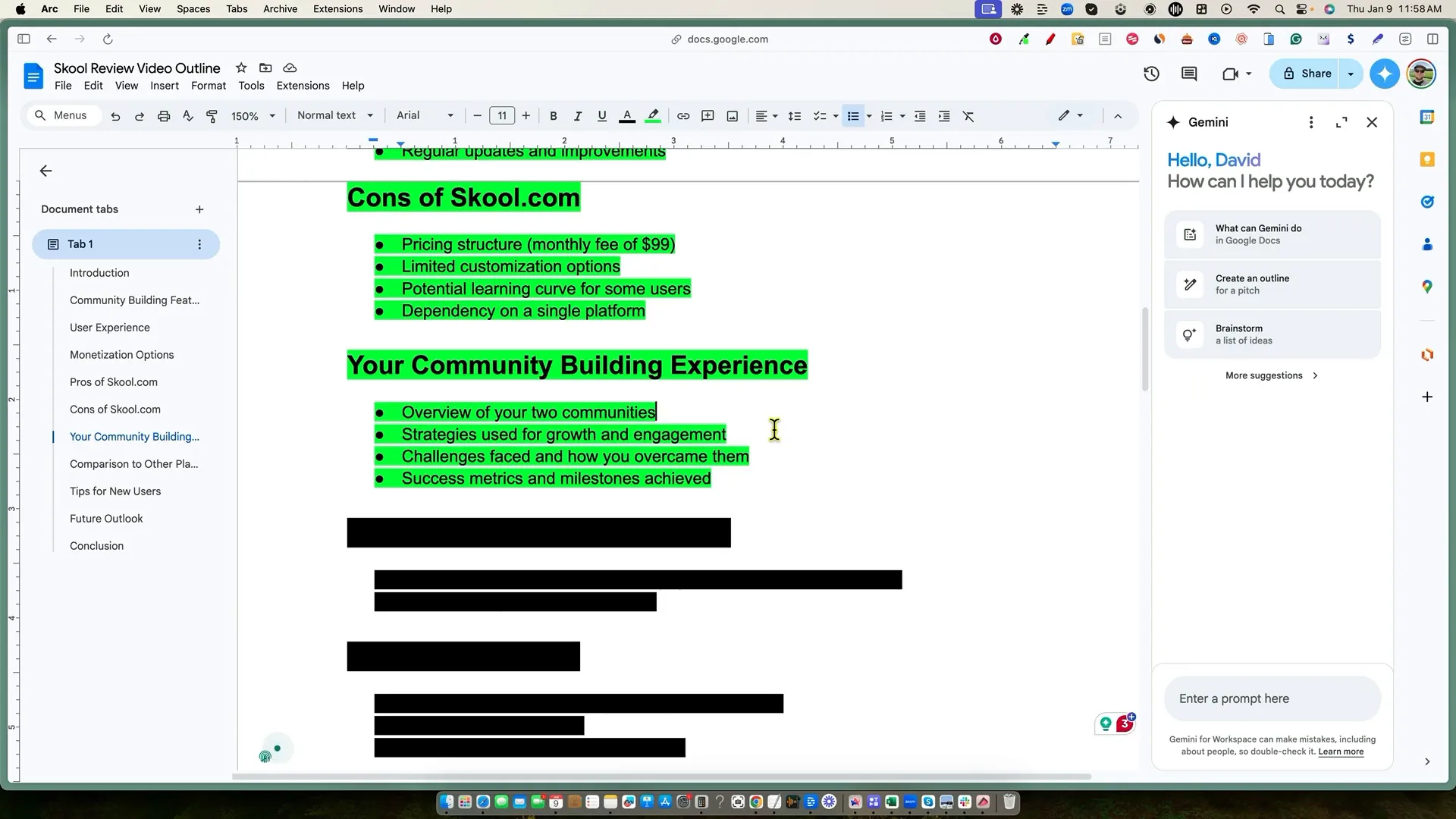
Pros and Cons of Skool
Like any platform, Skool has its strengths and weaknesses. Here’s a quick overview based on my experience.
Pros
- Strong Community Focus: The emphasis on relationships makes it a welcoming space.
- User-Friendly: Navigating the platform is a breeze, even for newbies.
- Monetization Options: There are multiple ways to earn through your community.
- Gamification Elements: Keeps users engaged and motivated to participate.
Cons
- Learning Curve: While it’s user-friendly, some features may take time to master.
- Limited Free Features: Some advanced features are behind a paywall.
- Community Size: Smaller communities may struggle with engagement initially.
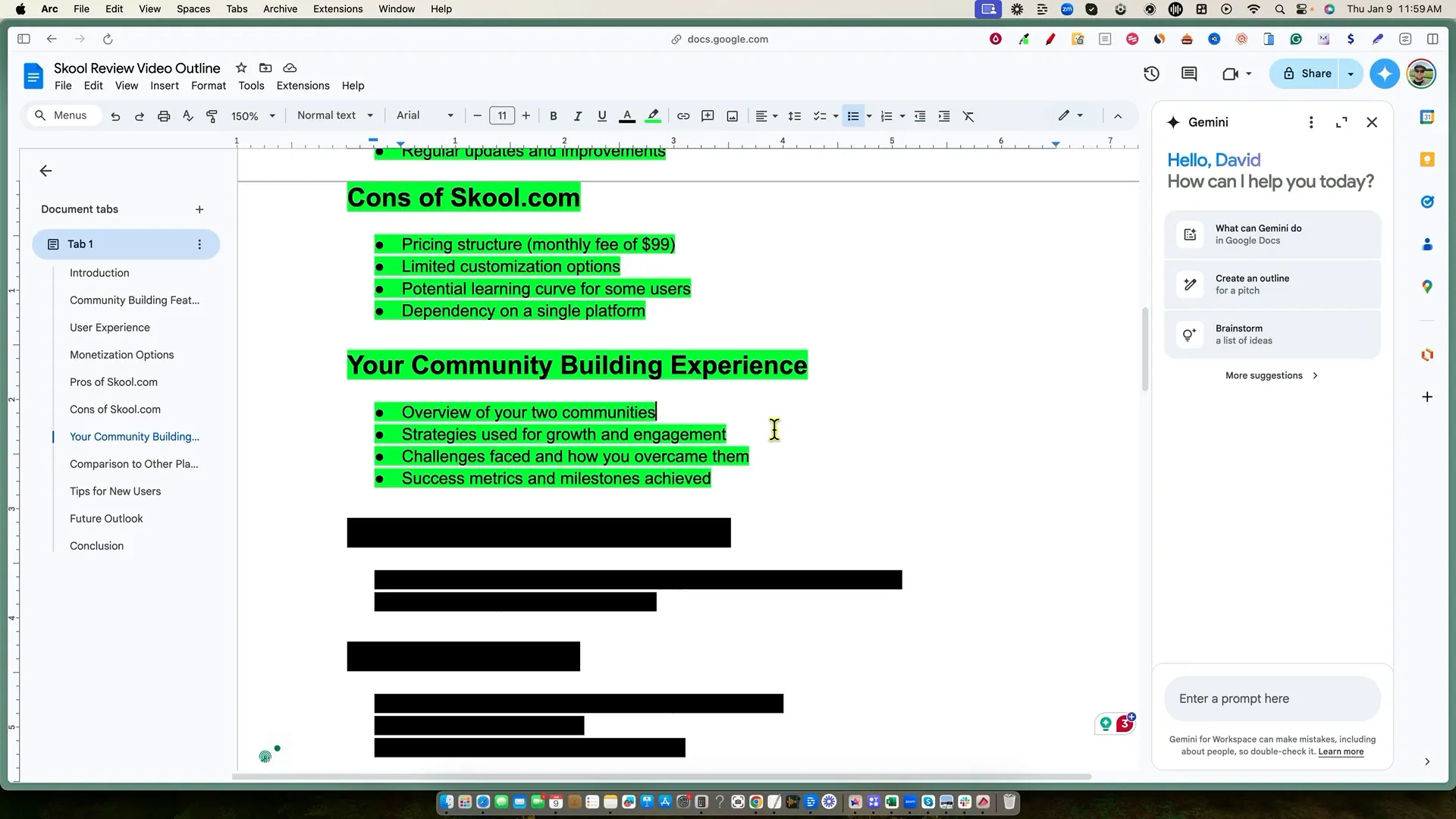
Future Outlook and Anticipated Updates
Looking ahead, I’m excited about what Skool has in store. The team is constantly working on updates and new features to enhance user experience.
Upcoming Features
There are whispers of more advanced analytics tools that will help community creators track engagement and growth more effectively. This could provide deeper insights into what’s working and what needs adjustment.
Community Feedback
The team actively seeks feedback from users, which is promising. This openness shows they’re committed to making Skool a better place for everyone. I can’t wait to see how they implement user suggestions in the future.
My Expectations
As a creator, I hope for more integrations with popular tools and platforms. This would streamline my workflow and make managing my communities even easier. Overall, I'm optimistic about the future of Skool.
